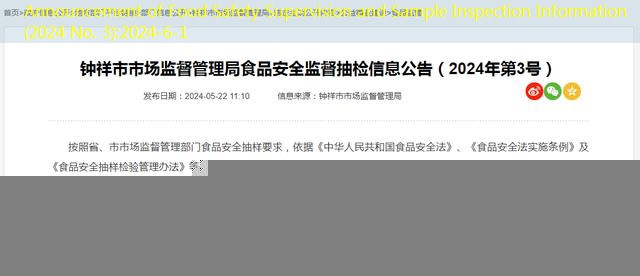The total number of colonies is usually used to determine the degree of contamination of food by microbial bacteria. The total number of colonies generally marks the quality of food hygiene.The total number of food colonies exceeds the standard, indicating that the increase in the risk of pathogenic bacteria in food, and this kind of food has a high chance to endanger the health of the editor.Different types of food have different food safety certifications, and the limit of the total number of colonies is also different according to the differences in food raw materials, production and processing technology, etc.
The total number of different food colonies is limited:
1. The total number of colonies of cooked meat products:
The mandatory national standard GB2726-2005 “Sanitary Standards for Cooked Meat Products” stipulates that the total number of colonies is ≤30000cfu/g, which can be judged as unqualified cooked meat products than the national standard regulations.
2. The total number of sorbe bacteria for drinking water:
According to the national compulsory standard GB17324-2003 “Bottle Drinking Pure Puritic Sanitation Standards”, the total number of colonies of pure water should be ≤20cfu/ml, the total number of colonies of barrels of drinking water should be ≤50 CFU/ml, and the colonobacter population shall ≤3MPN/100ml; the total number of colonies of natural mineral water is <50cfu/ml.
3. Total number of cakes and bacteria:
According to the national compulsory standard GB 7099-2003 “Cakes, Bread Sanitation Standards”, the total number of colonies in moon cake products must not exceed 1500cfu/g.Qualified pastry products.
4. Total number of frozen drinks iliated bacteria:
According to the national compulsory standard GB2759.1-2003 “Frozen Drink Sanitation Standards”, the total number of freezing or drinks containing starch or fruits shall ≤ 3000CFU/G, and the colonobacteria shadow should ≤ 100MPN/100g;The total number of colonies should be ≤25000cfu/g, and the colonobacter population shall ≤ 450MPN/100g.
5. Total number of calcium bacteria of fruit and vegetable juice beverages:
According to the national compulsory standard GB19297-2003 “Sanitary Standards for Fruit, Vegetable Sauce Beverage”, the total number of colonies of fruit (vegetable) juice and fruit (vegetable) juice beverage products shall not exceed 100CFU/ml.
6. Total number of sorbe bacteria for solid beverages:
According to the national compulsory standard GB7101-2003 “Solid Beverage Sanitation Standards”, the total number of colonies of solid drink products should be ≤1000cfu/g exceed the national standard regulations.
7. The total number of bacteria for Basal sterilization milk:
According to national compulsory standards GB19645-2005 “Pakistani Bybids and Sterilization Milk Sanitation Standards”, the total number of sterilized lactibella must not exceed 10CFU/G.
8. The total number of colonies of carbonated beverages:
According to the national compulsory standard GB2759.2-2003 “Carbonated Beverage Sanitation Standards”, the total number of colonies of carbonated beverage products should be ≤100CFU/ml, and the colonobacter population should be ≤6MPN/100ml; the national standards can be judged as unqualified carbonated beverages.
9. The total number of colonies of soy products:
According to the national compulsory standard GB2711-2003 “Non-fermented soybean products and gluten hygiene standards”, the total number of colonies of non-fermented soy products in shape packaging is ≤750 CFU/G; according to national compulsory standards GB2712-2003″Sanitary Standards” stipulates that the colonic flora of setting packaging fermented soy products is ≤30MPN/100g.If it exceeds the national standards, it can be judged as unqualified bean products or gluten.
10. The total number of calcium bacteria of fried snack foods:
According to the national compulsory standards GB16565-2003 “Fried Small Food Sanitation Standards”, the fried stir-fired colonic colonies are ≤30 mpn/100g, which can be judged as non-qualified cooking products.
11. Total number of crickets for biscuits:
According to the national compulsory standard GB7100-2003 “Biscuits Sanitation Standards”, the total number of colonies of non-sandwicked biscuits shall not exceed 750 CFU/G, and the total number of sandwiches of the sandwich biscuits must not exceed 2000 CFU/G.
12. Total standards of puffed foods:
According to the national compulsory standard GB17401-2003 “Puffer Food Sanitation Standards”, the total number of colonies of puffed food should be ≤ 10000 CFU/G, which can be judged as non-qualified puffed foods than the national standards.
13. The total number of colonies of instant noodles:
According to the national compulsory standard GB17400-2003 “Instant Noodle Sanitation Standards”, the total number of noodles of the instant noodles+the total number of colonies is ≤ 50,000 CFU/G, and the colonobacterus is ≤ 150 mpn/100g.instant noodles.
14. Total number of sorbence bacteria for condiments:
According to the standard of SB/T10371-2003 “Chicken Seasoning”, the colonobacteria must not exceed 90MPN/100g in chicken flavors.Over the national standard, it can be judged as not qualified vinegar.The total number of colonies of sesame sauce: The colonic flora of sesame sauce products shall be ≤90/100g according to national standards, which can be judged as unqualified sesame sauce.
Although different foods have different total colonies, the main cause of the total number of food colonies is caused by the incomplete sterilization of food production companies. In addition to the health management of production, the choice of food sterilization products is equally important.When choosing sterilization products, the most concerned about high -efficiency sterilization, safe and harmless, simple and fast operation and other issues.
Expert suggestions:
In food production and processing, the total number of microorganisms should be avoided by the total number of colonies.It can use hydrogen peroxide and silver ion sterilization products, which can efficiently kill all kinds of microorganisms. It can be used for disinfection work of production equipment, cooling workshops, product packaging, personnel, etc., characterized by fast and strong effect, can kill all pathogenic microorganisms,Wide range of applications.It can be used as a sterilizer and has no resistance to medication. It is a new type of safe, efficient, wide -spectrum disinfection agent. There is no “three -time effect”.represent.
Novo NovusWater can completely solve the problem of microbial exceeding standards in various food industries and provide comprehensive solutions. Norfing Novus NOVUSWATER series products have the characteristics of efficient, clean and safe, are food grade, colorless and tasteless, no toxic and residual new new newOne generation of ecological disinfection products.






















